
Tell state lawmakers: Phase out inefficient light bulbs that contain toxic mercury
MASSPIRG is working to safeguard public health, protect consumers in the marketplace, transform our energy and transportation systems, reduce waste, remove toxic threats, curb wasteful spending, revitalize our democracy, and protect our environment.
SEND A MESSAGE
Incinerators and landfills are dirty, polluting, and bad for public health. We bury, burn or export more than half of our waste and to make matters worse, much of the waste that ends up in incinerators and landfills is banned by state regulation. MASSPIRG is fighting to get the Commonwealth on the path to a zero-waste future and to ensure that state waste policy is dedicated to the principle of reduce, reuse, recycle.
Deposits are the single most successful tactic for recycling beverage containers. But the bottle bill has not been updated since it became law 40 years ago. This bill would expand the deposit to cover water bottles, nips. vitamin drinks and other containers—the vast majority of which end up as litter or waste. It also raises the deposit from 5 to 10 cents.
Nothing we use for an average of 6 minutes should pollute our environment for years. Plastic bags litter our parks and open space, choke marine animals, and waste millions of gallons of petroleum, one of their main ingredients. This bill would follow the 150 + cities and towns in our state, including Boston, which have already restricted single use plastic bags.
This bill will reduce packaging waste and improve recycling by creating a “polluter pays” model of producer responsibility for packaging and other items, making producers responsible for funding collection and recovery of materials they use and sell.
For decades, we’ve known that one of the worst forms of plastic pollution is polystyrene foam—what most of us call Styrofoam. The Environmental Protection Agency estimates that Americans throw away an estimated 25 billion polystyrene cups every year, or about 82 cups per person. Polystyrene doesn’t degrade, is not recyclable, and as a result it clogs our landfills, litters our streets, and pollutes our environment. This bill prohibits the sale and use of most single-use polystyrene containers.
This measure requires that restaurants only provide customers with single-use utensils and other takeout materials (straws, stirrers, cup sleeves, condiment packets, etc.) if the customer asks for them. If customers request these items, restaurants would charge a small fee.
Massachusetts gets rid of more than 8,000 cell phones every day. We should keep our electronics working and off the scrap heap, but the companies that make today’s electronics, from phones to appliances to modern tractors, actively block access to the information we need to fix them. That means more cost for consumers and more toxic electronic waste. This bill gives consumers and independent repair businesses access to the parts, tools, technical manuals, diagnostic software and firmware needed to keep electronics working.
Electronic waste, also known as e-waste, is some of the most toxic waste we dispose of. This bill would regulate the recycling of discarded electronic products, requiring any producer of covered electronics to register with the Department of Environmental Protection. It imposes financial responsibility for collection, transportation, and reuse or recycling on producers, either through reimbursement of collectors or direct collection efforts.
We are exposed to PFAS “forever” chemicals, which are linked to cancer and other illnesses, in water, food, and consumer products. We’re working to stop the use of PFAS in consumer products, clean up contamination in our water and communities, and to hold industry accountable for damage they have caused. As of 2/2023, 169 public water systems in more than 90 Massachusetts cities and towns—from the Berkshires to the Cape—have tested above the Maximum Contaminant Level (MCL) of PFAS in their drinking water.
This bill bans PFAS in almost all products, starting with food packaging, children’s products, fabric treatments, cookware, personal care products, cookware, carpets and rugs, and upholstered furniture and firefighter protective gear by Jan 1, 2026. And all other products must be PFAS free by Jan. 2030.
Requires businesses that make or sell children’s products in Massachusetts to disclose toxic chemicals in those products, bans PFAS in children’s products, and establishes a process for requiring the removal of additional toxic chemicals from children’s products.
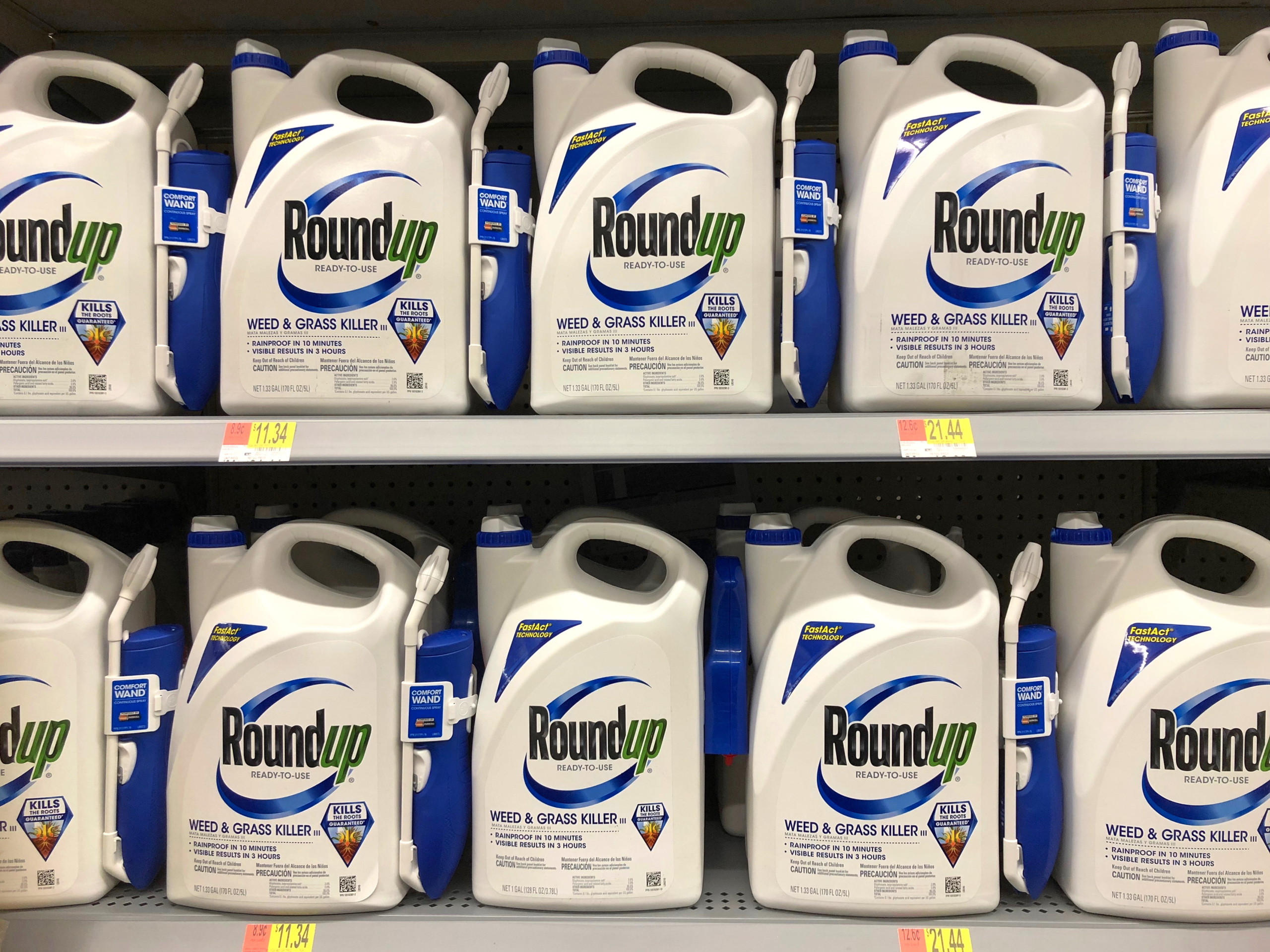
Photo by Sheila Fitzgerald | Shutterstock.com
There are more than 80,000 chemicals on the market in the United States, used in everything from perfumes and household cleaners to fertilizers and industrial solvents. Yet most of them go directly into use without testing their impact on our health, or the long-term consequences for the environment. Given what we know about the potential harm some chemicals can do, we shouldn’t rush a chemical into widespread industrial or commercial use before we know for sure that it’s safe. Certainly, we should stop using the ones we know are toxic.
The World Health Organization has warned that the main ingredient in Monsanto’s Roundup, glyphosate, is a probable human carcinogen. Despite the risks we spray 26 million pounds of Roundup on public parks, playgrounds, schools and gardens every year. This bill reduces exposure and use of Roundup by preventing the use of Glyphosate and Round Up in our parks, schools and other public lands.
This bill reduces the use of glyphosate-containing herbicides by restricting its use to licensed pesticide applicators only.
This bill would create an online portal and database for pesticide use reporting records with clear, online public access to the annual data and it would require that pesticides be proven safe before being used on playgrounds and fields where children learn and play.
All families and communities should have access to clean air, safe drinking water, and healthy and sustainably produced food.
Lead is a potent neurotoxin that affects how our children develop, learn, and behave. Yet, according to the Department of Environmental Protection more than half of the 43,000 taps tested from 980 schools across Massachusetts have tested positive for lead.
This bill protects children’s health by getting the lead out of the water at all schools and childcare centers by requiring the installation of lead certified filters or water filling stations; and establishing a health-based lead level standard for schools and day care centers of 1ppb and requires the immediate shut-off of outlets with elevated levels of lead.
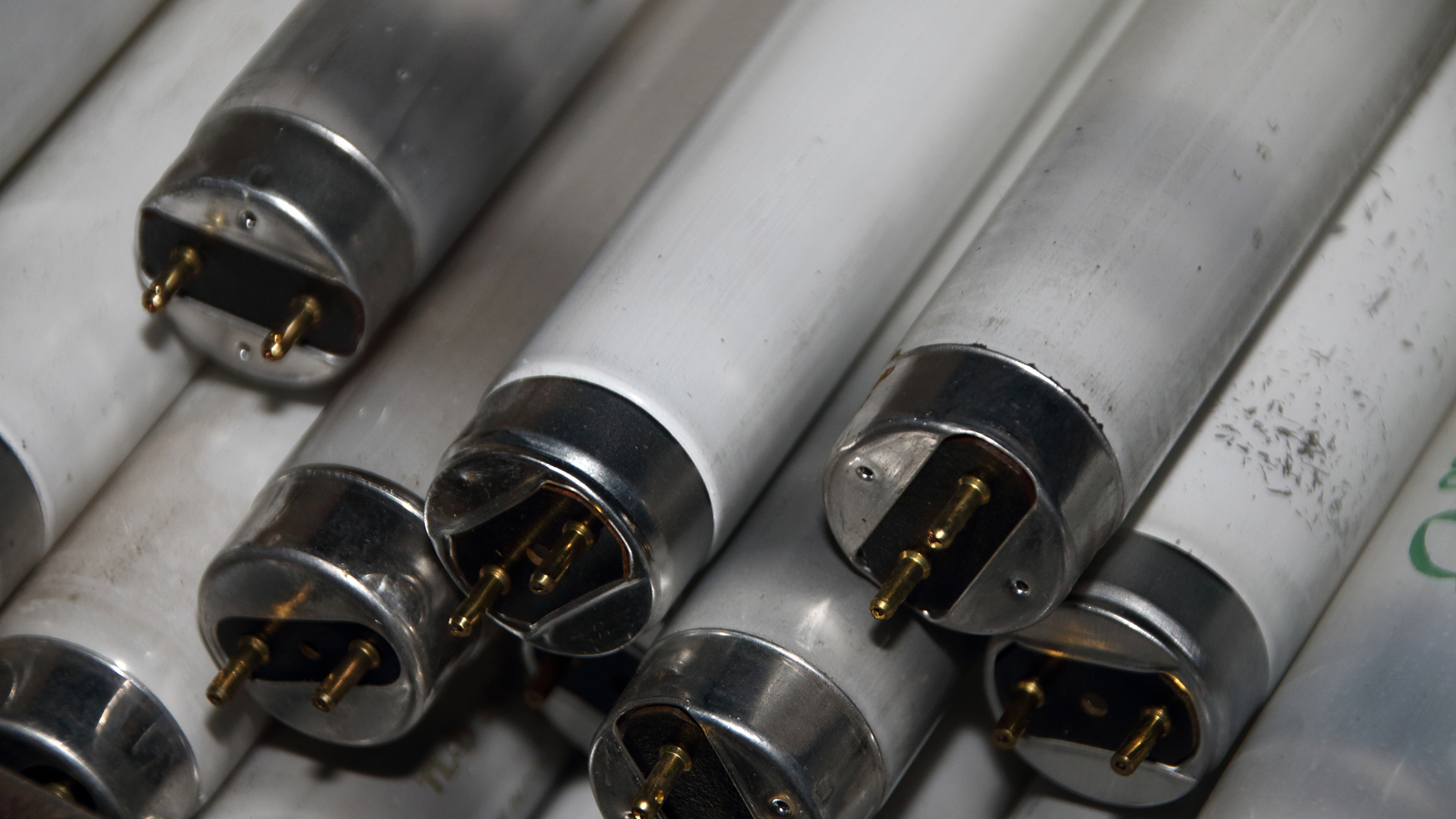
Photo by photowind | Shutterstock.com
Fluorescent lights are a common sight in offices, garages, and basements—but they contain toxic mercury and use far more energy than newer alternatives. By phasing out fluorescents in favor of efficient LED bulbs, Massachusetts can avert a needless health risk by eliminating 20lbs of mercury waste annually, save families and businesses $146 million annually on utility bills, and curb greenhouse gas emissions. The bill phases out the sale of most fluorescent bulbs by 2025.
Pollution from the fossil fuels used to provide heat and electricity for our buildings is harming our health, changing our climate and wasting resources. Increasing energy efficiency and replacing fossil fuel heating with clean alternatives in large buildings — including office buildings, apartment buildings, and hospital and university campuses — is one way to make rapid progress toward a zero-emissions future. This bill will require the owners of large buildings to make their buildings more energy-efficient over time protecting our health and saving money.
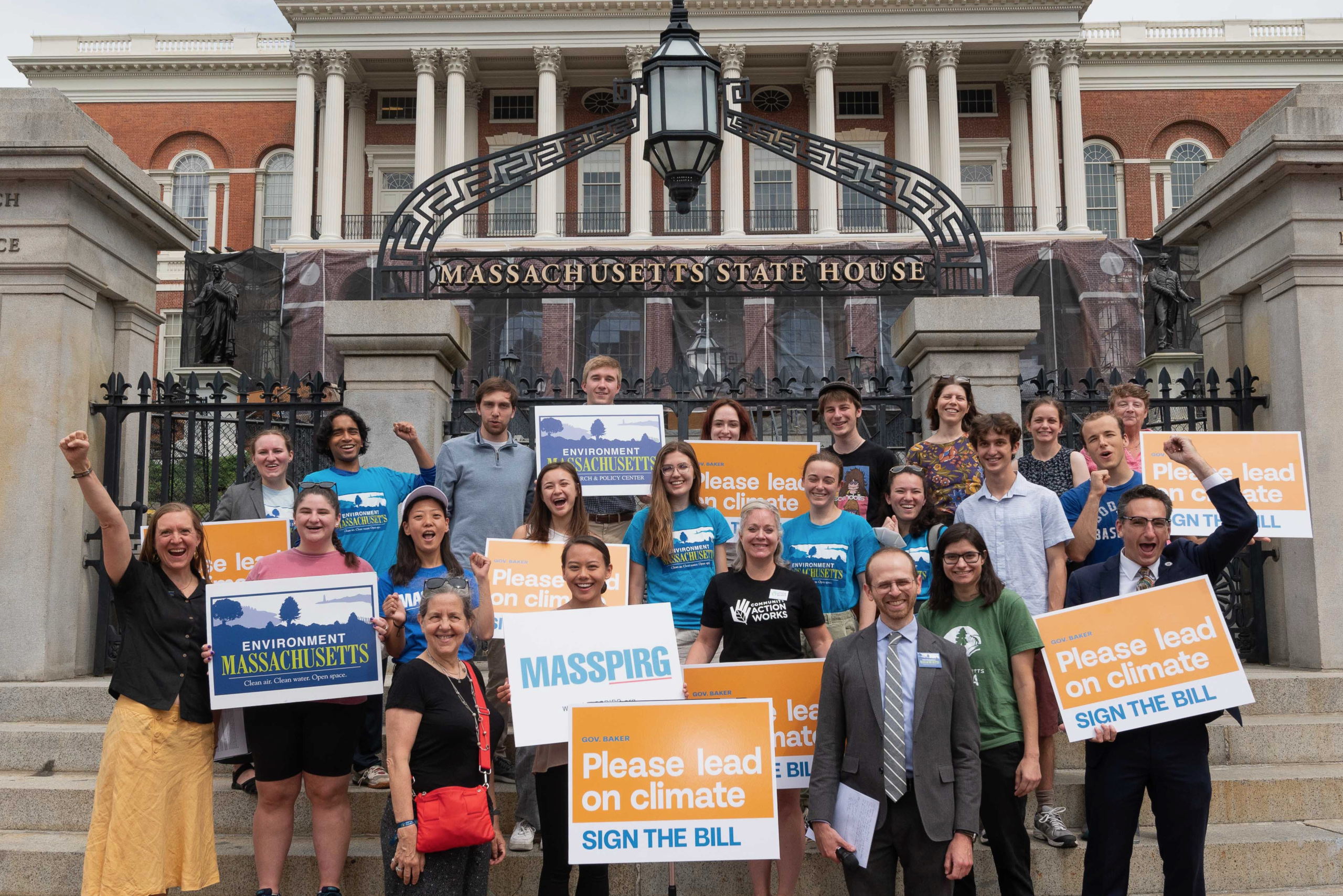
Photo by Liam Louis, Elle Vignette Photography | Used by permission
This bill will transition Massachusetts to 100 percent clean electricity by 2035 and 100 percent clean heating and transportation by 2045. It lays out clear requirements and actions for the Commonwealth to achieve these objectives, while ensuring that workers and environmental justice communities are included in the transition.
Nuclear power is unsafe, too expensive, and alternatives for safer, sustainable energy abound. The one remaining power station in Massachusetts, Pilgrim Nuclear Power station, closed in 2019, yet many questions remain regarding consumer safety and accountability from the station’s owners.
This bill designates any community within a 50 mile radius (up from 10 mile radius) of an active or inactive nuclear power plant as a Nuclear Power Plan Area expanding emergency planning, and health and safety assessments of inactive plants which store nuclear material.
Establishes a special commission to examine the environmental and economic impact of discharging spent fuel pool water and other waste material from the generation of nuclear energy into any water including bays, coastal water, canals, rivers and streams. It also imposes a moratorium on any of these discharges for up to 2 years until after the issuance of the commission’s final report.
One in three public university students in Massachusetts are food insecure. This bill will create a grant program at the Department of Higher Education to support college campuses across the Commonwealth with technical assistance and funding to alleviate hunger on their campuses. It will offer a roadmap for colleges to take several steps, including creating awareness campaigns, providing enrollment support in food assistance benefits such as SNAP and WIC, establishing on-campus EBT-SNAP vendors, and developing meal- sharing programs.
Pollution from cars, trucks, and buses harm our health. Vehicle crashes kill 40,000 Americans a year. Further, the transportation sector is the largest contributor to climate change in Massachusetts, responsible for 37% of statewide emissions in 2020. Boston is now ranked the fourth-worst city in the world for congestion, with the average driver losing 134 hours — more than five days — to traffic in 2022.
We support policies that reduce the need to drive, promote walking, biking, and mass transit, and electrify buses and cars — so the easiest, cheapest and most pleasant ways to travel are also the cleanest and healthiest.
Regional Transit Authorities (RTA)s provide essential transit services to 250 communities beyond the reach of the MBTA. This bill would provide long overdue funding needed to maintain, improve, and expand regional transit services. The bill seeks to improve governance and information sharing by adding new rider voices to the RTA council and requiring an annual report on service gaps in RTA communities.
It’s time to build a fast, frequent, reliable, all-electric Commuter Rail to connect the Commonwealth of Massachusetts. This bill aims to improve service, boost ridership, and reduce greenhouse gas emissions by increasing frequency standards and fully electrify the MBTA Commuter Rail system by 2035 using a phased, line-by-line approach.
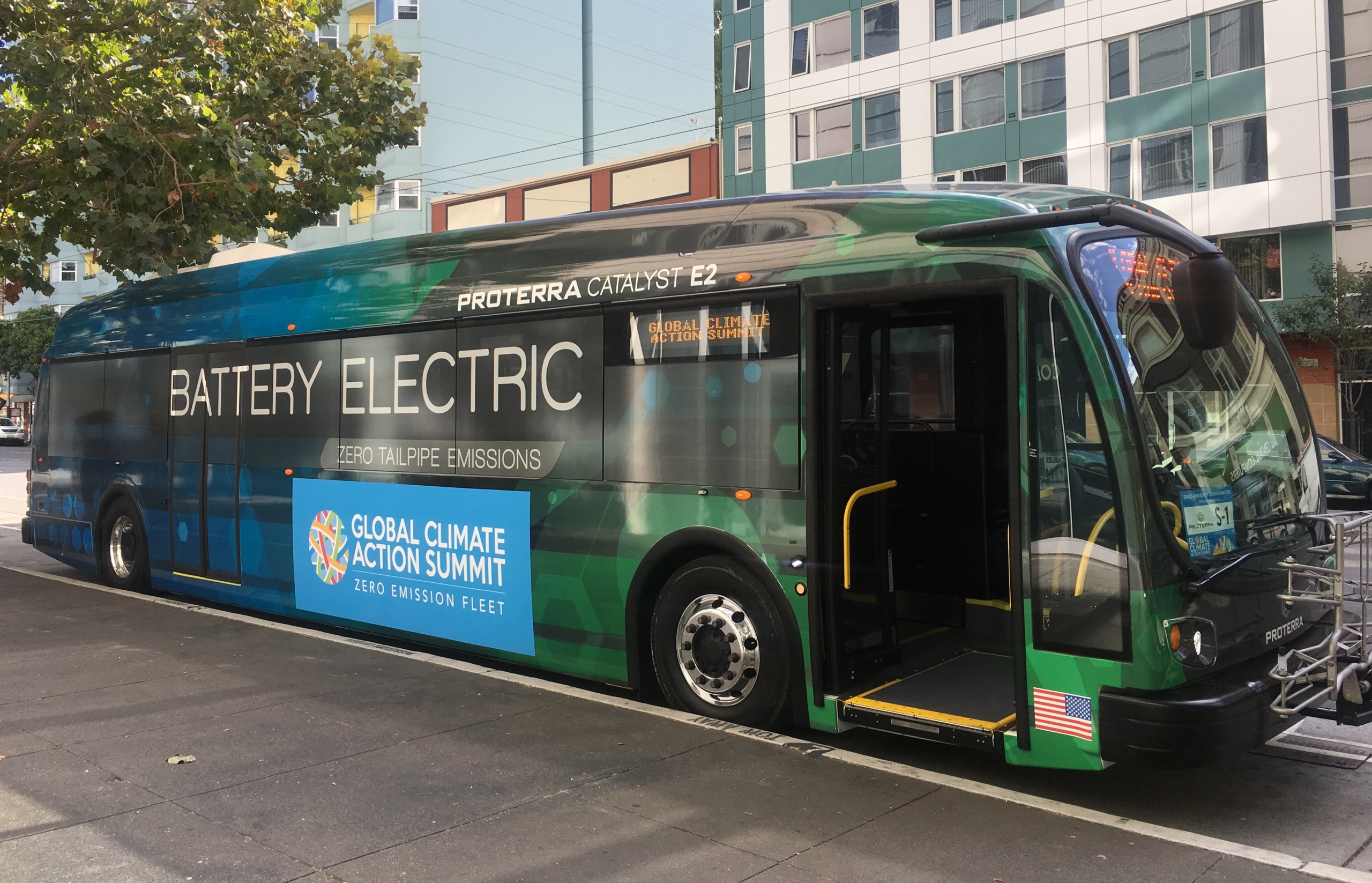
This bill aims to electrify public and public-serving motor vehicle fleets by 2035 and establish a centralized procurement process for public fleets. It would also establish goals for converting private fleets to electric vehicles and design an incentive program to encourage this conversion.
Communities served by Regional Transit Authorities (RTAs) cannot be left behind in the transition to clean and efficient transportation. This bill requires the Commonwealth’s RTA bus fleets to be electrified by 2035. It establishes a central planning and procurement office to provide technical and planning support for the electric vehicle bus rollout plans.
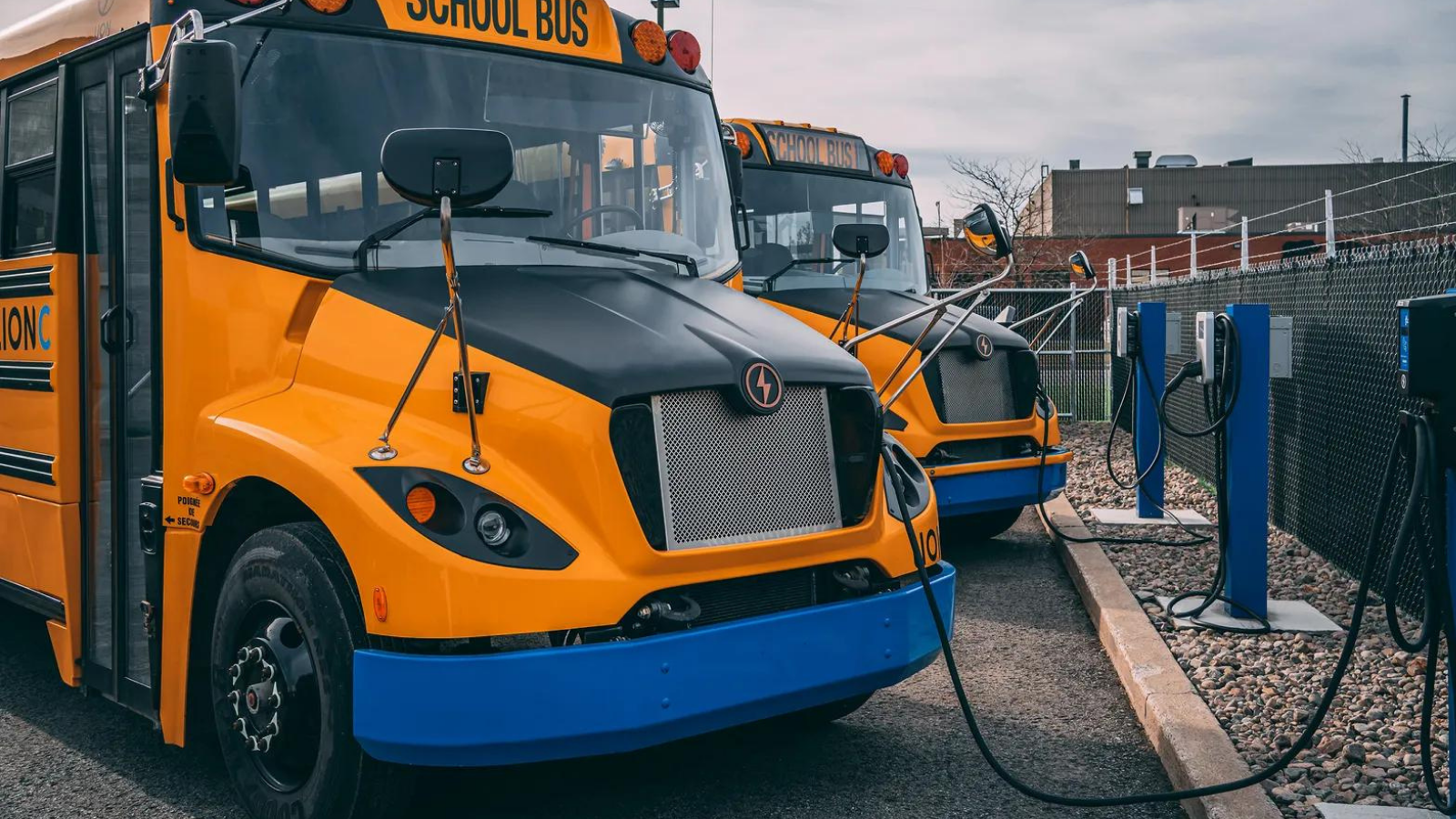
Photo by Lion Electric | Used by permission
Massachusetts students need a cleaner ride to school. Several bills have been filed to help fund the transition to all-electric school buses. All-electric school buses will help deliver improved air quality, reduced health risks, and progress towards the Commonwealth’s climate goals.
Electric bicycles promote public health and protect the environment by reducing emissions and promoting active transportation. This bill establishes the “Community Access to Electric Bicycles Grant Initiative” to finance bike share programs and ownership programs run by municipalities, businesses, and nonprofit organizations.
Our democracy relies on the public’s engagement in the democratic process and on their voices being heard. We’re working to improve the electoral process—facilitating access to the ballot box, and ensuring our voting systems are efficient, transparent, and modern.
This bill would allow eligible people to register to vote any day during which there is voting– up to, and including, Election Day.
This bill establishes Same Day Registration of Voters.
Since early 2020, the Legislature has suspended provisions of the Open Meeting Law to enable public bodies to carry out their responsibilities remotely, with virtual access and participation by members of the public. This has led to higher participation from the public and board members. As good government practices have evolved, many public bodies have combined the best of old and new, enabling both in-person and remote attendance.
When the temporary rules expire, this bill will ensure we don’t go back to in-person meetings only under the open meeting law. Instead, this bill will provide greater access to open meetings for everyone — particularly for people with disabilities, caregiving responsibilities, and limited transportation — by allowing officials and members of the public to attend meetings in person or remotely. The bill phases in hybrid meeting requirements by 2030, starting with elected municipal bodies.
Our economy works for everyone when consumers are equal players in the marketplace. But all too often consumers are sold inferior or unsafe products or services, lose millions of dollars in hidden and or excessive fees, or are charged too much for products and services due to failures in the marketplace.
Given that as many as 1 in 4 consumer credit reports contain significant errors this bill limits the use of credit reports in employment decisions.
The bill requires that all homeowners’ insurance policies written in Massachusetts include coverage for the remediation of an accidental release of home heating oil, closing a loophole currently in our basic homeowners insurance policies today that covers accidents from other sources of heat like fire and explosions from electricity and gas.
Janet has been the executive director of MASSPIRG since 1990 and directs programs on consumer protection, zero waste, health and safety, public transportation, and voter participation. Janet has co-founded or led coalitions, including Earth Day Greater Boston, Campaign to Update the Bottle Bill and the Election Modernization Coalition. On behalf of MASSPIRG, Janet was one of the founding members of Transportation for Massachusetts (T4MA), a statewide coalition of organizations advocating investment in mass transit to curb climate change, improve public health and address equity. Janet serves as Chair of the Board of Directors for the Consumer Federation of America and serves on the Common Cause Massachusetts executive committee, Alliance for a Healthy Tomorrow board of directors, and Department of Environmental Protection Solid Waste Advisory Committee. For her work, Janet has received Common Cause’s John Gardner Award and Salem State University’s Friend of the Earth Award. Janet lives in Cambridge, Massachusetts, with her husband and two sons, and every Wednesday morning she slow-runs the steps at Harvard Stadium with the November Project.
Deirdre runs MASSPIRG’s public health, consumer protection and tax and budget programs. Deirdre has led campaigns to improve public records law and require all state spending to be transparent and available on an easy-to-use website, close $400 million in corporate tax loopholes, protect the state’s retail sales laws to reduce overcharges and preserve price disclosures, reduce costs of health insurance and prescription drugs, and more. Deirdre also oversees a Consumer Action Center in Weymouth, Mass., which has mediated 17,000 complaints and returned $4 million to Massachusetts consumers since 1989. Deirdre currently resides in Maynard, Mass., with her family. Over the years she has visited all but one of the state's 351 towns — Gosnold.
